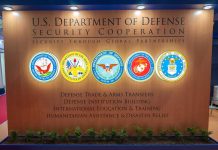
A Yukon couple’s dream vacation turns into a $10,000 legal victory against Air Canada after a booking nightmare.
At a Glance
- Air Canada ordered to pay $10,000 USD for violating passenger protection regulations
- Couple’s Cuba trip ruined due to overbooking and poor communication
- Three-day ordeal highlights risks of automated booking systems
- Court criticizes Air Canada’s reliance on computers over human intervention
Couple’s Vacation Dream Turns into Nightmare
A Yukon couple’s long-awaited vacation to Cuba turned into a legal battle against Air Canada, resulting in a $10,000 USD compensation award. Tosh Southwick and her husband had saved for three years for a child-free getaway, only to face a series of travel disruptions that left them stranded across multiple airports for three days.
The ordeal began when the couple voluntarily gave up their seats on an overbooked flight, expecting compensation and a rescheduled trip. Instead, they found themselves caught in a web of lies and failed promises by Air Canada, ultimately forcing them to book their own tickets to Cancun, Mexico, in a last-ditch effort to salvage part of their vacation.
Air Canada takes B.C. couple to court over flight delay complaint
If the airline is successful, the couple fears they could be on the hook for Air Canada's legal costshttps://t.co/qLd7nXiQrM
— National Post (@nationalpost) January 30, 2024
Court Ruling Exposes Air Canada’s Failures
The Small Claims Court of Yukon ruled decisively against Air Canada, finding multiple violations of Canada’s Air Passenger Protection Regulations (APPR). Justice Katherine L. McLeod’s judgment was scathing, calling the experience a “horrendous ordeal”, highlighting the airline’s failure to provide timely updates, coherent planning, or adequate compensation to the affected couple.
The court rejected Air Canada’s defense of weather-related delays and found their initial compensation of $1,800 for hotel and food grossly insufficient. This ruling serves as a stark reminder of the consequences airlines face when failing to adhere to passenger rights regulations.
Automated Systems vs. Human Intervention
A key issue highlighted in the court’s decision was Air Canada’s over-reliance on automated systems at the expense of human judgment. Justice McLeod criticized the airline’s approach, emphasizing the need for human intervention in complex travel situations.
“Had a human being examined available alternative travel, provided proper documentation, and evaluated the feasibility of travel plans selected by corporate computer systems, most of this situation would have been avoided,” said the justice.
This case underscores the risks associated with automated booking systems and the importance of maintaining human oversight in customer service operations. It serves as a wake-up call for airlines to balance technological efficiency with the need for personalized problem-solving in travel disruptions.
Implications for Passenger Rights
The ruling is being hailed as a landmark victory for passenger rights in Canada. It emphasizes the need for airlines to be transparent, communicative, and accountable when dealing with travel disruptions. For travelers, it serves as a reminder to understand their rights and seek appropriate compensation when those rights are violated.
As the airline industry faces a backlog of complaints and proposed regulatory updates, this case may set a precedent for future air passenger rights disputes. It highlights the ongoing challenge for airlines to balance operational efficiency with efficient customer service, especially in an era where automated systems play an increasingly prominent role in travel planning and management.









